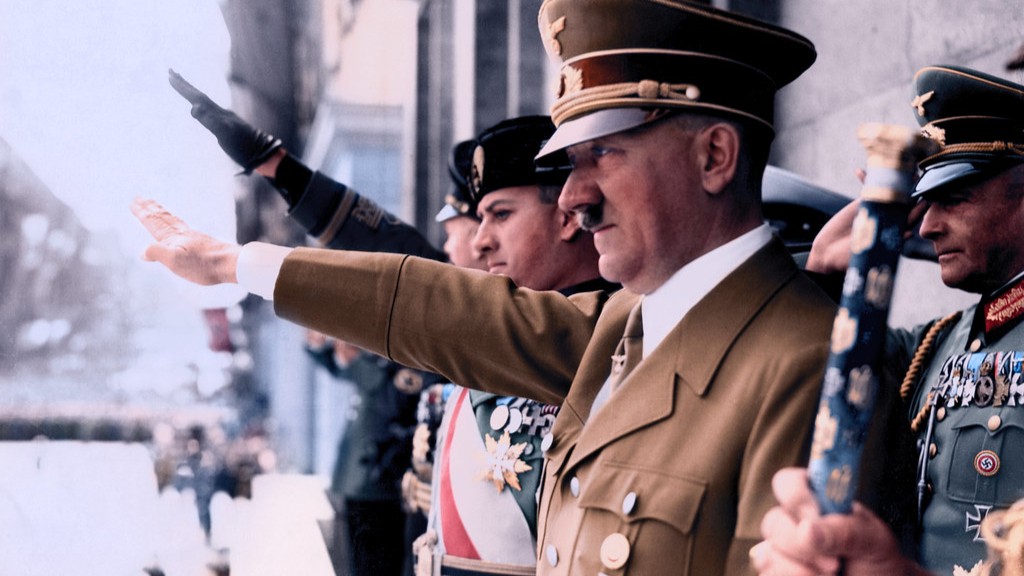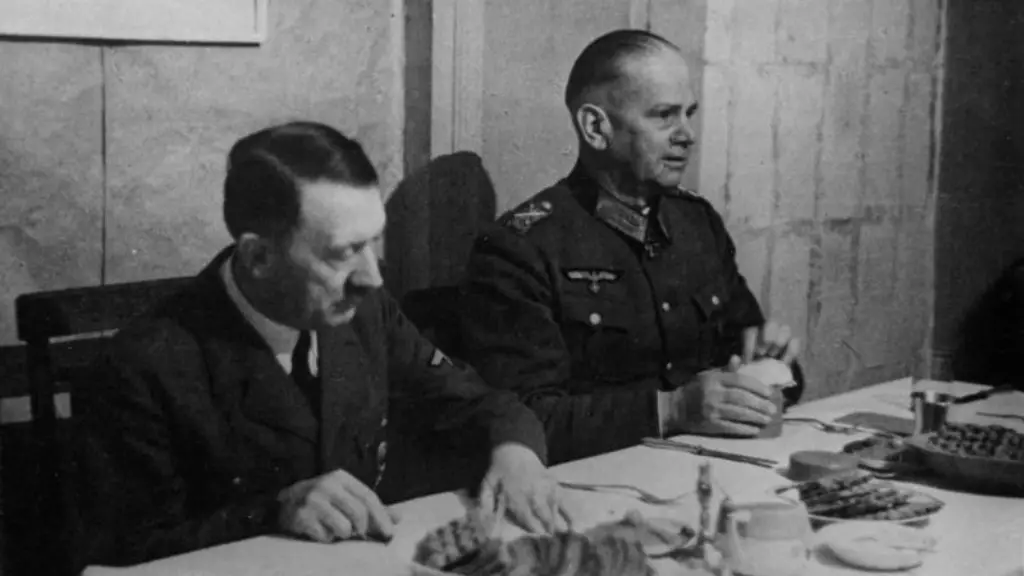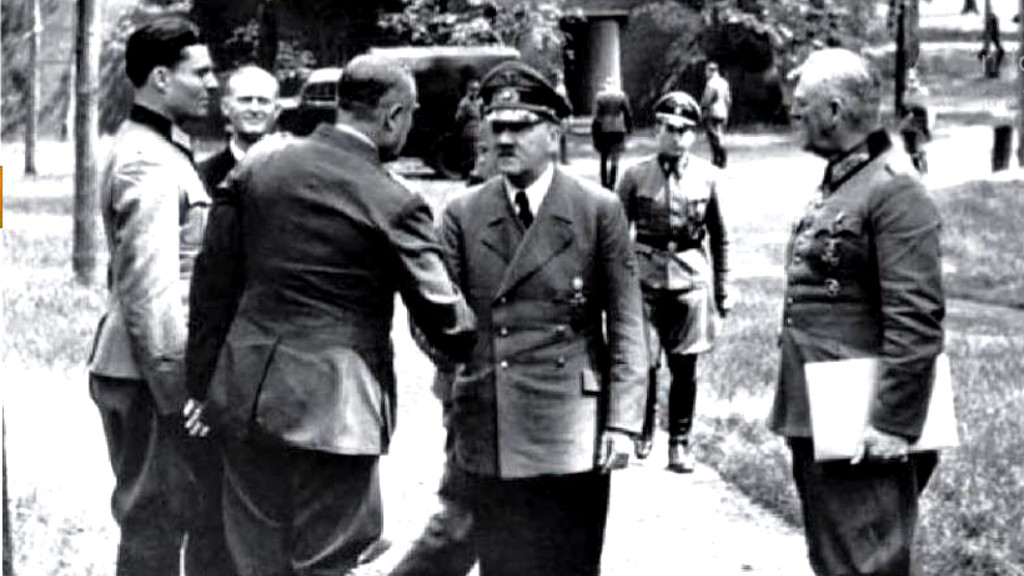Background of Adolf Hitler Affecting WW2
Adolf Hitler is remembered as one of the most destructive dictators in history. He was the leader of Nazi Germany and under his rule, the country saw its greatest rise in power and the commencement of World War II. Hitler’s rise to power marks a crucial turning point in world history that ultimately led to the Cold War and the European Union today. However, before all of this, it was Hitler’s ambition and obsession with power that drove Nazi Germany to start World War II.
Hitler’s Obsession with Power
Hitler was a passionate believer in the concept of Aryan supremacy, which was the belief that a pure ‘master race’ of Germanic people should dominate the world. This belief meant that Hitler did not accept the Treaty of Versailles which imposed harsh punishments upon Germany after World War I, or the notion of racial equality brought forth by the League of Nations. It was through power that Hitler sought to create the German empire he had dreamed of since early childhood.
Hitler’s Tactics for Power: Flawed Reasoning and Propaganda
In order to achieve his mission, Hitler relied on flawed reasoning and manipulative propaganda. The Nazi party made use of anti-Semitic education taught in German schools, which sought to create a unified and dehumanizing image of an enemy nation. Moreover, falsely painted images of Jewish people as the cause of Germany’s suffering were used to galvanise the nationalist German public. In addition, racial segregation between German citizens and non-Germans were put in place in an effort to engender the superior-race concept Hitler was convinced of.
Invasion of Poland and The Start of WW2
Hitler’s heavy handed tactics resulted in the first major military action of World War II: The Invasion of Poland. On September 1, 1939, Nazi Germany and its Nazi allies launched a full-scale invasion on Poland, which ultimately led to the start of World War II. Hitler’s invasion of Poland was an unprecedented move of aggression that demonstrated his desire to expand the German empire to its perceived maximum potential and the new world order he sought to instil in a global scale.
Hitler’s Expanding Ambitions
Hitler’s ambitions and dreams of a unified German empire did not end with the Invasion of Poland. His ambitions for conquest and domination lead to the Blitzkrieg offensives across Western Europe. Hitler’s invasion and occupation of France, Belgium, the Netherlands, Luxembourg, and Norway paved the way for Nazi dominance in the region and marked a significant expansion of Nazi Germany’s power in the region.
The Atomic Bomb and it’s Impact on WW2
Despite the success of Hitler’s invasion of Western Europe, World War II did not end in the manner that Hitler had initially desired. The atomic bomb had a devastating impact on the global situation, leading to the surrender of Nazi Germany and the end of the war. Shortly thereafter, Hitler was found dead after having committed suicide.
Rebuilding in the Aftermath of WW2
The end of World War II marked a significant move in world history as it unveiled the fall of Nazi Germany, and in effect, the fall of Hitler’s dream of a unified German empire. However, it also provided an opportunity for reconstruction and rebuilding. The end of the war was the start of a new era for the world in terms of international relations, political power and economic stability.
The Rise of the European Union
One of the most notable developments after the fall of Hitler’s empire was the rise of the European Union. The EU was formed as a result of a wide range of activities and initiatives, as well as the Treaty of Maastricht, which was an agreement that sought to promote unity among the European states. This agreement also created the euro currency and facilitated the mobility of goods and services across Europe.
The Cold War and Its Impact
The Cold War provided further evidence of the significant impact that World War II and Hitler’s power had on the global political landscape. After the end of WWII, the United States and the Soviet Union entered into a major geopolitical rivalry. This two superpowers were in a constant state of ideological warfare, and the global order was shaped by their conflict and competition.
Other Conflicts Created by WW2 and Hitler
The world developed into an increasingly complex and divided state after the fall of Hitler’s power and the end of WW2. Conflict emerged from numerous places as a result of the new geopolitical landscape of the world. Tensions between Arab and Israel, Turk and Greek, and South Asian countries saw increased volatility due to the newly established economic and political powers in the region. This was the result of the power vacuum caused by the fall of Nazi Germany.
The Legacy of Adolf Hitler
Adolf Hitler had a significant impact on the world. He was the driving force behind the start of World War II, a conflict that took the lives of millions of people and changed the course of history forever. While his legacy is unparalleled in terms of its destruction, Hitler’s legacy can also be seen in historical events since the end of World War II. The rise of the European Union, the Cold War and other regional conflicts are all direct consequences of Hitler’s rise to power and his obsession with power.


